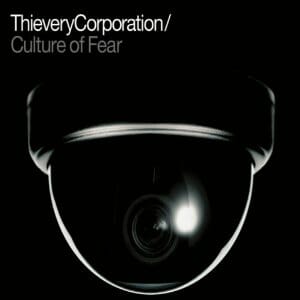Thievery Corporation: Culture of Fear

When Eric Hilton and Rob Garza came together to form Thievery Corporation in 1995, the two Washington D.C.-based musicians and DJs were breaking new ground. Taking inspiration from British trip-hop artists like Massive Attack, Tricky and Portishead, Thievery Corporation successfully combined downtempo electronica grooves with reggae and R&B sounds to create songs that were both musically challenging and great to dance to. In addition, more than any other band since U2, Hilton and Garza have always written lyrics that reflected the duo’s radical politics while still maintaining a groove that makes their missives palatable.
Culture of Fear is Thievery Corporation’s sixth album, and the collective’s old fans will likely find a lot to enjoy on it. Their trademark mixture of real instruments, electronic textures and phrases that encapsulate everything from Brazilian bossa nova to old-school Jamaican dub are solidly intact. The juxtaposition of grooves is still profound and disturbing when it needs to be and light and dreamy when the going gets tough, but repeated plays of the new disc also reveal a band in a holding pattern. And, while that’s not necessarily a bad thing—if something isn’t broken, why fix it?—there is sometimes a creeping sense of sameness to the tracks on the new album that has never been present before.
-

-

-

-

-

-

-

-

-

-

-

-

-

-

-

-

-

-

-

-

-

-

-

-

-

-

-

-

-

-

-

-

-

-

-

-

-

-

-

-








































